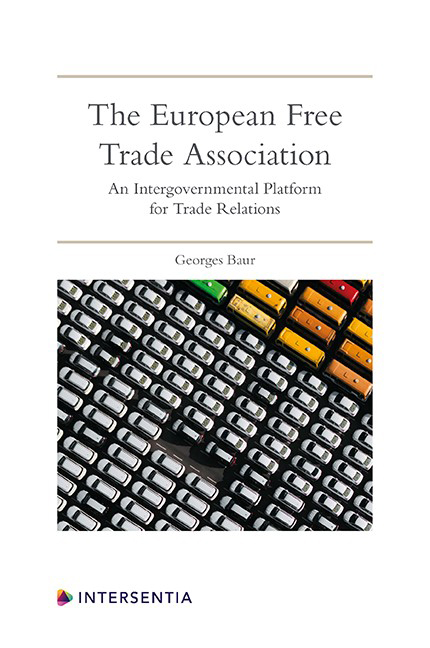Book contents
- Frontmatter
- Foreword
- Preface
- Acknowledgements
- Contents
- List of Tables and Figures
- Chapter 1 What is EFTA?
- Chapter 2 Short Historical Overview
- Chapter 3 Substantive Fields of Activity of EFTA
- Chapter 4 EFTA Institutions, Membership, Scope and Other General Provisions
- Chapter 5 Trade Relations with Third Countries and Groups of Countries
- Chapter 6 The Relations between the EFTA States and the EU/EEA
- Chapter 7 Conclusion: EFTA Membership for the UK Post-Brexit?
- Convention Establishing the European Free Trade Association
- Annex K. Free Movement of Persons (Chapter VIII)
- Annex T. Arbitration (Art. 48)
- Index
- About the Author
Chapter 7 - Conclusion: EFTA Membership for the UK Post-Brexit?
Published online by Cambridge University Press: 21 July 2020
- Frontmatter
- Foreword
- Preface
- Acknowledgements
- Contents
- List of Tables and Figures
- Chapter 1 What is EFTA?
- Chapter 2 Short Historical Overview
- Chapter 3 Substantive Fields of Activity of EFTA
- Chapter 4 EFTA Institutions, Membership, Scope and Other General Provisions
- Chapter 5 Trade Relations with Third Countries and Groups of Countries
- Chapter 6 The Relations between the EFTA States and the EU/EEA
- Chapter 7 Conclusion: EFTA Membership for the UK Post-Brexit?
- Convention Establishing the European Free Trade Association
- Annex K. Free Movement of Persons (Chapter VIII)
- Annex T. Arbitration (Art. 48)
- Index
- About the Author
Summary
INTRODUCTION
In this final chapter of the present book, the discussion turns to the potential benefits of (renewed) EFTA membership for the UK post Brexit. The issue has to be seen against the background of the fact that, rather soon after the referendum on Brexit, it started to dawn on many that the UK will, by leaving the EU, also leave the EU's FTA network. Furthermore, it will need a new basis for its trade relationships with its closest partners in Europe, including in particular the EU member states as well as the EFTA states of Iceland, Liechtenstein, Norway and Switzerland.
The idea that the UK could or should (re-)join EFTA, was not only promoted by certain political groups in the discussion after the referendum of 23 June 2016. 1 In 2017, there was also a report of the House of Commons International Trade Committee, 2 which stated the following:
’ We recommend that the Government now evaluate the implications of the UK's rejoining the European Free Trade Association (EFTA), which would offer an opportunity for a smoother transition as the UK exits the EU in 2019. We were impressed by the potential benefits of EFTA membership, given there is close alignment between the UK's economy and those of EFTA members, albeit the UK would be considerably the largest member were it to join. The prospect of UK membership of EFTA from 2019 onwards could clearly be to Britain's advantage and we, therefore, recommend that the Secretary of State publish a White Paper on EFTA membership before summer 2017, so that negotiations can commence before the end of the year. ‘
However, this recommendation was not taken up by the UK government.
Since the General Election of December 2019, the UK is set to leave the EU on 31 January 2020. After that, there is a rather short time frame until 31 December 2020 in which to negotiate the new relationship with the EU and also FTAs to replace the EU's FTA network which the UK will leave by that date.
- Type
- Chapter
- Information
- The European Free Trade AssociationAn Intergovernmental Platform for Trade Relations, pp. 165 - 188Publisher: IntersentiaPrint publication year: 2020
- 1
- Cited by

